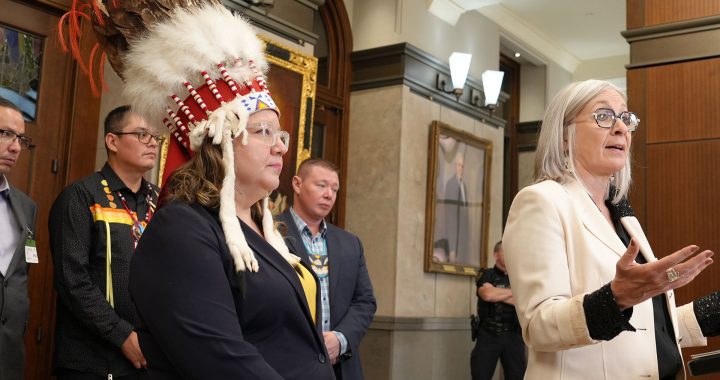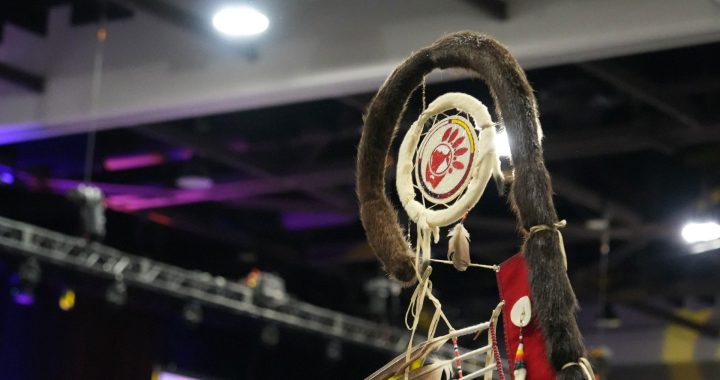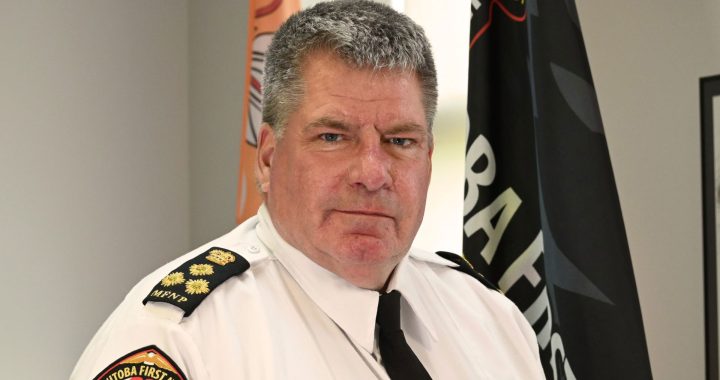Quebec’s Indigenous Affairs minister says the government is taking a first concrete step to ensure its health-care systems are culturally secure for First Nations and Inuit.
On Friday, in Montreal, Ian Lafreniere announced a $15-million investment to create new liaison and navigator positions in the province’s hospitals, and secure cultural sensitivity training for managers.
The investment – taken from Quebec’s $200-million Indigenous-specific coffer – will be spread out over a five-year period.
“The importance for us was to start a movement,” Lafreniere said while addressing reporters. “And today we did that announcement, which is saying cultural safety is important.”
According to a government press release, the cultural safety approach “consists in recognizing and taking into account of the reality and the culture of the person, the delivery of services and in the care experience, in order to provide relevant services and as a result to improve service quality and access to these services.”
Part of that process, according to Lafreniere, is collaboration.
This initial step was decided upon in conjunction with the Atikamekw Nation – still mourning the late-September loss of 37-year-old mother Joyce Echaquan – and is meant to directly address recommendations made in Chapter 10 of the Viens Commission final report.
Echaquan died at Joliette hospital on Sept. 28, shortly after recording racist taunts made by members of her care team.
A year prior to that, in October 2019, the Viens Commission final report found that “prejudice toward Indigenous peoples remains widespread in the interaction between caregivers and patients.”
“These prejudices and discriminatory practices toward Indigenous patients can have dire consequences, ranging from removing a child at birth to delayed diagnoses, refusing medical evacuation, not prescribing exams and tests as needed, or not even prescribing the proper medication,” Judge Jacques Viens wrote in the 488-page document.
“According to some experts and professionals, beyond the immediate impacts on the person who is sick, the insecurity-generating experiences of individuals and families lead to an underuse of services by the entire Indigenous population,” the report reads.
Constant Awashish, grand chief of the Atikamekw Nation, said the announcement is “good news in itself,” despite the intricacies of trying to improve the health care system overall.
“There is still a lot of work to be done to resolve inequities and systemic racism. Building trust between Indigenous people and the health-care system can’t be done overnight,” Awashish said in a statement issued by the Atikamekw National Council.
“At the very least, this announcement shows the government’s willingness to act, and that’s why we’re reaching out to work together,” he added.
Manawan Chief Paul-Emile Ottawa says safety – in all its forms – is still “top priority” for his community.
“We must continue to work to establish a climate of collaboration, even if the issue is expansive,” Ottawa said.
Health Minister Christian Dube, also on hand for Friday’s announcement, said this investment constitutes an act of goodwill by the provincial government.
This, despite Premier Francois Legault’s ongoing refusal to publicly admit that systemic racism exists in Quebec.
“When we had those first discussions after we had this accident – this horrible accident – I think I said clearly it was in our court to get the confidence back from those communities,” Dube explained. “I accept there was an issue of trust. What happened with Joyce Echaquan was an example of that. “
“We said clearly ‘we will prove to you by our actions that really we want to change.’ It’s one thing to have recommendations that sit on a bookshelf, but I think what we’re showing you today is that we are concrete in that action,” he added.
The Assembly of First Nations Quebec-Labrador, for their part, stressed that the political will shown by Quebec “must be translated into concrete action in the delivery of services in all institutions of the Quebec health and social services network.”
“There is an urgent need to regulate these cultural safety practices through legislative measures in order to avoid any deplorable situation,” AFNQL Regional Chief Ghislain Picard said in a statement.
According to Picard, the AFNQL plans to table a resolution on this subject at the next AFN Special Chiefs’ Assembly next December.
The “Principle for the Elimination of Racism and Discrimination in Services offered to First Nations,” will propose an official adoption of “Joyce’s Principle,” an initiative kick-started by the Atikamekw Nation late last month.
The Atikamekw are actively consulting with stakeholders and community members ahead of the tabling of “Joyce’s Principle” at Quebec’s National Assembly on Nov. 9.
Meanwhile, provincial officials made no secret Friday that there is a long road ahead.
“Today, this is not image-making: this is facts. These are facts for us,” Lafreniere explained. “The name of the plan is ‘I hope’ – let’s hope for the future. We’re working for the future. We’re not going to change 150 years of history.”
“We would like to regain trust from different nations. And we’re not telling you it’s going to be done within a week now. It’s a long process. We understand that,” he said.










